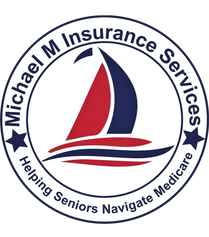Navigating Medicare enrollment can be confusing—especially if you’re still working when you become eligible. One of the most common questions we hear at Michael M Insurance Services is: “Do I need to sign up for Medicare Part B if I’m still employed and have health insurance?”
The short answer is: It depends on your specific situation. In this article, we’ll break down when it makes sense to enroll in Medicare Part B while working and when you might want to delay it without penalty.
What is Medicare Part B?
Medicare Part B is medical insurance that covers:
Doctor visits
Outpatient care
Preventive services
Durable medical equipment
Mental health services
Should I Enroll in Part B If I Have Employer Coverage?
The answer depends on:
The size of your employer
The quality of your current health coverage
Whether you plan to keep working past 65
1. If Your Employer Has 20 or More Employees
You can usually delay Part B without a penalty if your group health plan is considered creditable coverage (i.e., as good as or better than Medicare).
Why delay?
You avoid paying the Part B premium while still covered by employer insurance.
When you retire or lose your job, you get an 8-month Special Enrollment Period (SEP) to sign up for Part B without a late penalty.
2. If Your Employer Has Fewer Than 20 Employees
Medicare becomes primary and your employer coverage is secondary. In this case, you should enroll in Part B as soon as you’re eligible, even if you’re still working.
Failing to do so may result in:
Delays in coverage
Higher out-of-pocket costs
A late enrollment penalty (10% added to your premium for each year you delay)
3. If You're Self-Employed or on a Marketplace Plan
You should enroll in Medicare Parts A and B once eligible to avoid:
Losing premium subsidies on your individual health plan
Potential penalties
Gaps in coverage
How Michael M Insurance Can Help
We specialize in guiding working seniors through Medicare decisions. Our team will:
Review your employer coverage
Assess whether delaying Part B makes sense
Help you apply when the time is right
Ensure you avoid penalties and coverage gaps
Whether or not you should enroll in Medicare Part B while still working depends heavily on your current health insurance and employer size. Missing key details can lead to costly penalties or lapses in coverage. That’s why it’s essential to review your situation with a licensed Medicare advisor.
At Michael M Insurance Services, we help you navigate the rules with confidence. Schedule a consultation today and ensure your transition into Medicare is smooth, smart, and penalty-free.
FAQs
Can I enroll in Medicare Part A and delay Part B?
Yes. Many people enroll in free Part A and delay Part B until they need it.
Will delaying Part B affect my ability to get Medigap later?
If you delay beyond your Special Enrollment Period, it may be harder to qualify without medical underwriting.
What if I’m covered under my spouse’s employer plan?
The same rules apply—check if the employer has 20+ employees and confirm creditable coverage.
Can I have both employer coverage and Medicare?
Yes, and they will coordinate benefits. Usually, the larger employer pays first.
Do I need to notify Medicare if I’m delaying Part B?
No need to notify, but be sure not to enroll if you plan to delay. Save documentation of employer coverage.

